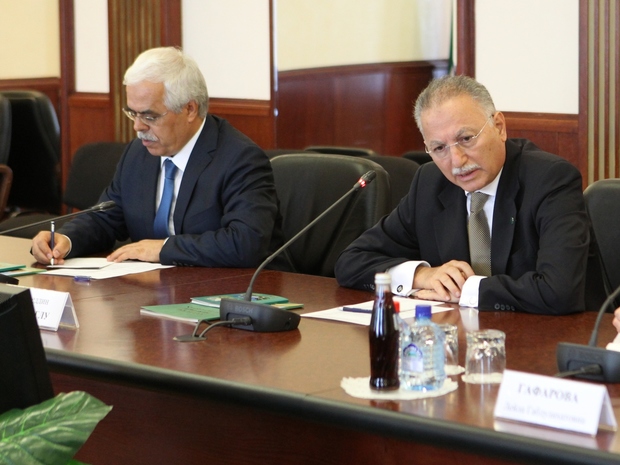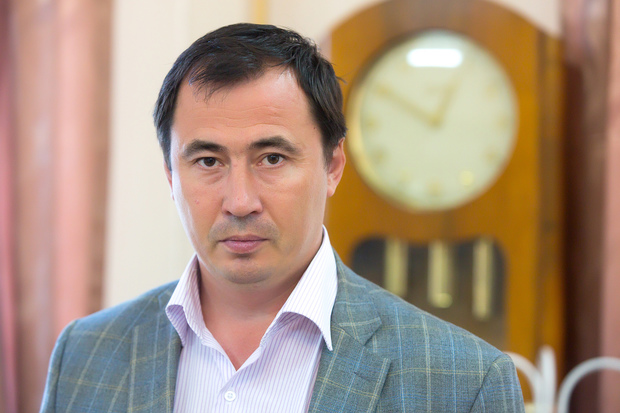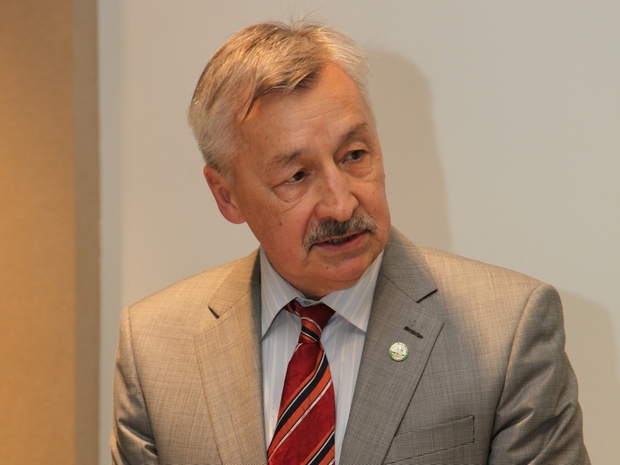Until better days: Turkish Congress of Islamic Archaeologists in Kazan is postponed indefinitely
‘Islamic UNESCO’ and the KFU asked to wait for the warming in Russian-Turkish relations
As it became known to Realnoe Vremya, at the last moment the Kazan organizers of the 3rd International Congress of Islamic Archaeology had to postpone the event, for which they were preparing for a year, indefinitely. According to the sources, a possible reason for the postponement is the participation as a partner of the event of the Research Centre for Islamic History, Art, and Culture (IRCICA), headquartered in Istanbul.
About how they were looking for a site to hold 'Islamic UNESCO'
From 17 to 18 June in Kazan there was to be held the 3 rd International Congress of Islamic Archeology with the participation of the Research Centre for Islamic History, Art, and Culture (IRCICA). Under the mysterious institute there is hidden the international organization, a sort of Muslim analogue of secular UNESCO at the Organisation of Islamic Cooperation (OIC).
Airat Sitdikov: 'We discuss the issues of better time to hold.' Photo: Roman Khasaev
Kazan was to host the Congress on the theme 'Overcoming the international and regional disunity, the consolidation of archaeological science, the role of Islamic Archeology in education, museum construction, preservation and restoration of ancient archaeological monuments'. Interestingly, the previous conferences were held in 2005 in Istanbul (Turkey) and in 2011 in Islamabad (Pakistan). The Kazan Congress was already announced in 2015, and the initial site was stated the Kazan State University. For the discussion of this issue in Kazan there came the Director General of IRCICA Dr. Halit Eren, who met with the rector of KFU Ilshat Gafurov. Then the organizer became the Institute of Archaeology named after Khalikov of Tatarstan Academy of Sciences.
The director of the Institute of Archeology of Tatarstan Academy of Sciences Sitdikov declared that the Congress is not cancelled, it is postponed indefinitely. 'We discuss the issues of better time to hold,' he commented briefly. The Academy of Sciences of Tatarstan could not comment quickly on the information on the postponement of the date of the event.
Old acquaintances
As Realnoe Vremya found out from its sources, the event was not destined to take place. The reason for this was the injunction of the security forces, imposed on the participation in the Congress of the representatives of IRCICA, including Halit Eren, who was supposed to come to the Congress.
The Director General of IRCICA Halit Eren visited Tatarstan many times. So, he visited in 2001, 2005, 2006, 2012, 2015. He took an active part in the preparation and holding of the International conference 'Great Volga route', International Symposium 'Islamic culture in Volga-Ural region'. In the framework of the cooperation there was repeatedly published a major monograph 'Tatar History and Civilisation' in English, as well as it was planned a joint restoration and digitization of rare Oriental manuscripts of the Kazan University.
In June of 2006, Eren was given the title of honorary doctor of the Institute of History named after Sh. Mardzhani of the Academy of Sciences of Tatarstan. By the way, another friend of Tatarstan and honorary Professor of the Academy of Sciences of Tatarstan, the rival of Erdogan in the presidential election from the opposition and the former head of the OIC Ekmeleddin İhsanoğlu headed IRCICA for quite a long time.

The ban has been received
However, everything changed after the complication of Russian-Turkish relations because of the downed SU-24. Then IRCICA, headquartered in Istanbul, got on the list of the undesirable organizations.
The cooperation with KFU was suspended. The director of the Institute of International Relations, History and Oriental Studies Ramil Khairutdinov did not give any comment, he said that he comments only personally. On the question whether it is true that the Institute of Archaeology received advice not to work with IRCICA, Sitdikov replied that he had no such information.
At the same time, the director of the Institute of History of RT Academy of Sciences Rafael Khakimov knows that the ban on IRCICA is manifested in the fact that Congress was prepared at the University, but was postponed.
'They (KFU) also received the ban, however, I don't know in what form. We were only told that specifically to the Institute of History there are no claims on IRCICA or other Turkish channels. We work with Turkey privately: not as an institution with a structure, but as with individual authors. We even take Ukrainian authors — we don't look at it. If it is a good author, a good Professor, then he does not get under sanctions,' says the head of the Institute of History.
'IRCICA is not engaged in financing'
We can only guess the reasons for the presence of IRCICA on the list of undesirable organizations.
Rafael Khakimov: 'This organization deals with the issues of History, Culture. But since IRCICA is located in Istanbul, apparently, so it fell under this ban. I don't know whether this ban is official.' Photo: prav.tatarstan.ru
'This is the organization at the Islamic Commonwealth, which includes 47 Islamic countries. Something like UNESCO, that is, the organization deals with the issues of History, Culture. But since IRCICA is located in Istanbul, apparently, so it fell under this ban. I don't know whether this ban is official, whether this organization is in some list or not… Before the situation with Turkey, Tatarstan actively cooperated with IRCICA, they came here. They study how in different countries Islam was developing, what it is today. They published a series of books on the history of different countries with emphasis on Islam. Also they studied calligraphy and continue to do that. Islamic calligraphers hold international conferences, contests, they collect a library,' tells Rafael Khakimov. 'In some places they helped, in Bosnia for example, to restore mosques. But it was non-material help, they helped with projects and moral support – IRCICA is not engaged in financing. It does not finance anything, they can come, gather some people, and they did not pay.'
In the scientific community there are rumours that after the suspension of the cooperation with KFU, IRCICA in response sent an email to friendly organizations with the recommendation not to work with Kazan University. But this is only speculation…

